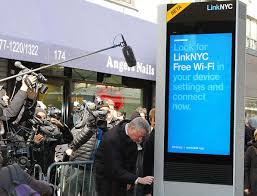
Breaking News
DRINK 1 CUP Before Bed for a Smaller Waist
 Nano-magnets may defeat bone cancer and help you heal
Nano-magnets may defeat bone cancer and help you heal
 Dan Bongino Officially Leaves FBI After One-Year Tenure, Says Time at the Bureau Was...
Dan Bongino Officially Leaves FBI After One-Year Tenure, Says Time at the Bureau Was...
 WATCH: Maduro Speaks as He's Perp Walked Through DEA Headquarters in New York
WATCH: Maduro Speaks as He's Perp Walked Through DEA Headquarters in New York
Top Tech News
 Laser weapons go mobile on US Army small vehicles
Laser weapons go mobile on US Army small vehicles
 EngineAI T800: Born to Disrupt! #EngineAI #robotics #newtechnology #newproduct
EngineAI T800: Born to Disrupt! #EngineAI #robotics #newtechnology #newproduct
 This Silicon Anode Breakthrough Could Mark A Turning Point For EV Batteries [Update]
This Silicon Anode Breakthrough Could Mark A Turning Point For EV Batteries [Update]
 Travel gadget promises to dry and iron your clothes – totally hands-free
Travel gadget promises to dry and iron your clothes – totally hands-free
 Perfect Aircrete, Kitchen Ingredients.
Perfect Aircrete, Kitchen Ingredients.
 Futuristic pixel-raising display lets you feel what's onscreen
Futuristic pixel-raising display lets you feel what's onscreen
 Cutting-Edge Facility Generates Pure Water and Hydrogen Fuel from Seawater for Mere Pennies
Cutting-Edge Facility Generates Pure Water and Hydrogen Fuel from Seawater for Mere Pennies
 This tiny dev board is packed with features for ambitious makers
This tiny dev board is packed with features for ambitious makers
 Scientists Discover Gel to Regrow Tooth Enamel
Scientists Discover Gel to Regrow Tooth Enamel
 Vitamin C and Dandelion Root Killing Cancer Cells -- as Former CDC Director Calls for COVID-19...
Vitamin C and Dandelion Root Killing Cancer Cells -- as Former CDC Director Calls for COVID-19...
Are New York's Free LinkNYC Internet Kiosks Tracking Your Movements?

LinkNYC kiosks have become a familiar eyesore to New Yorkers. Over 1,600 of these towering, nine-and-a-half-foot monoliths — their double-sided screens festooned with ads and fun facts — have been installed across the city since early 2016. Mayor Bill de Blasio has celebrated their ability to provide "the fastest and largest municipal Wi-Fi network in the world" as "a critical step toward a more equal, open, and connected city for every New Yorker, in every borough." Anyone can use the kiosks' Android tablets to search for directions and services; they are also equipped with charging stations, 911 buttons, and phones for free domestic calls.
But even as the kiosks have provided important services to connect New Yorkers, they may also represent a troubling expansion of the city's surveillance network, potentially connecting every borough to a new level of invasive monitoring. Each kiosk has three cameras, 30 sensors, and heightened sight lines for viewing above crowds.
Since plans for LinkNYC were first unveiled, journalists, residents, and civil liberties experts have raised concerns that the internet kiosks might be storing sensitive data about its users and possibly tracking their movements. For the last two years, the American Civil Liberties Union, Electronic Frontier Foundation, and a small but vocal group of activists — including ReThink LinkNYC, a grassroots anti-surveillance group, and the anonymous Stop LinkNYC coalition — have highlighted the kiosk's potential to track locations, collect personal information, and fuel mass surveillance.



